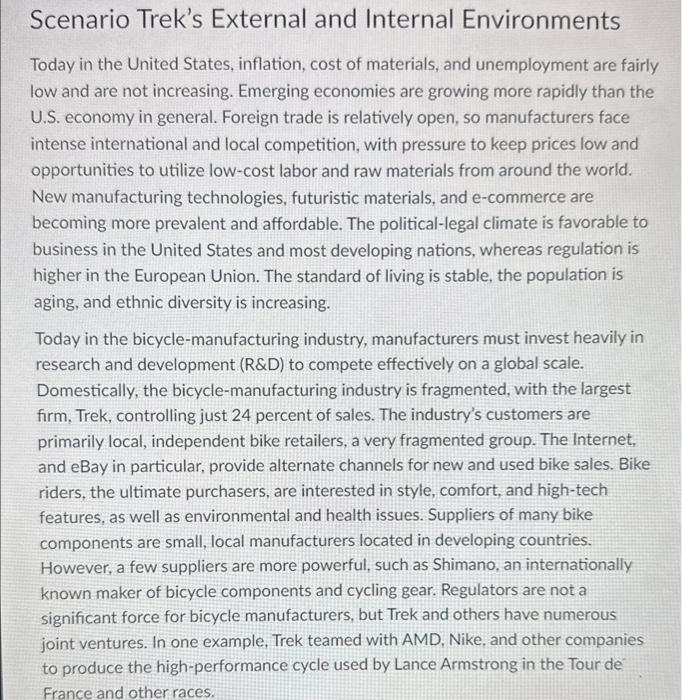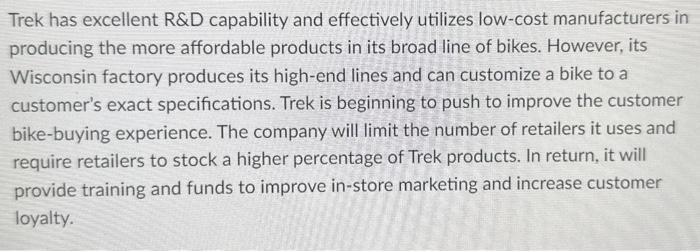Scenario Trek's External and Internal Environments Today in the United States, inflation, cost of materials, and unemployment are fairly low and are not increasing. Emerging economies are growing more rapidly than the U.S. economy in general. Foreign trade is relatively open, so manufacturers face intense international and local competition, with pressure to keep prices low and opportunities to utilize low-cost labor and raw materials from around the world. New manufacturing technologies, futuristic materials, and e-commerce are becoming more prevalent and affordable. The political-legal climate is favorable to business in the United States and most developing nations, whereas regulation is higher in the European Union. The standard of living is stable, the population is aging, and ethnic diversity is increasing. Today in the bicycle-manufacturing industry, manufacturers must invest heavily in research and development (R\&D) to compete effectively on a global scale. Domestically, the bicycle-manufacturing industry is fragmented, with the largest firm, Trek, controlling just 24 percent of sales. The industry's customers are primarily local, independent bike retailers, a very fragmented group. The Internet, and eBay in particular, provide alternate channels for new and used bike sales. Bike riders, the ultimate purchasers, are interested in style, comfort, and high-tech features, as well as environmental and health issues. Suppliers of many bike components are small, local manufacturers located in developing countries. However, a few suppliers are more powerful, such as Shimano, an internationally known maker of bicycle components and cycling gear. Regulators are not a significant force for bicycle manufacturers, but Trek and others have numerous joint ventures. In one example, Trek teamed with AMD, Nike, and other companies to produce the high-performance cycle used by Lance Armstrong in the Tour de France and other races. Trek has excellent R\&D capability and effectively utilizes low-cost manufacturers in producing the more affordable products in its broad line of bikes. However, its Wisconsin factory produces its high-end lines and can customize a bike to a customer's exact specifications. Trek is beginning to push to improve the customer bike-buying experience. The company will limit the number of retailers it uses and require retailers to stock a higher percentage of Trek products. In return, it will provide training and funds to improve in-store marketing and increase customer loyalty. If you were a department manager for Trek, what is a major problem that you see? Using the information from the case study and the decision making process in your textbook, provide information from each step as well as alternatives to the









